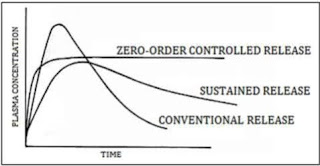Pharmacology-1
Definition of Pharmacology
The word pharmacology
derives from the two Greek word pharmacon mean drug logos means knowledge.
Thus, Pharmacology can be defined as a subject that deals with the knowledge of drugs and their instructions with living systems.
Branches of pharmacology
- Pharmacokinetics: The word pharmacokinetics is derived from two words pharmacon meaning drugs and kinetics meaning putting in motions. It can be defined as “the branch of pharmacology that deals with the absorption, distribution, metabolism and excretion of drugs and their relationship with the onset that duration and intensity of the drug effect. What the body does to the drug is a pharmacokinetics.
- Pharmacodynamics: pharmacodynamics is the branch of pharmacology that deals with the mechanism of action of a drug and the relation between the drug concentration and its effects. It is a study of the physical and chemical effect of drugs on body parasites and microorganisms. What the drug does to the body is pharmacodynamics.
- Therapeutics: The branch of Pharmacology that deals with the art and science of treatment of diseases is the application of pharmacological information together with the knowledge of disease for the prevention and cure of the disease.
- Chemotherapy: Chemotherapy refers to the treatment of disease by chemicals that kill the cells, especially those of micro-organisms and neoplastic cells.
- Toxicology: Toxicology is the branch of pharmacology who is include the study of adverse effect of drugs on the body it deals with the symptom’s mechanisms treatment and detection of poisoning caused by different chemical substance.
- Clinical Pharmacology: clinical Pharmacology is the scientific study of drug in man eat in fruit pharmacokinetics and pharmacodynamics Investigations in healthy or Diseased individuals.
- Pharmacy: pharmacy is the branch of pharmacology and is the art and science of compounding by dispensing drugs Preparing suitable Doses form for administration to man and animals.




nice
ReplyDelete